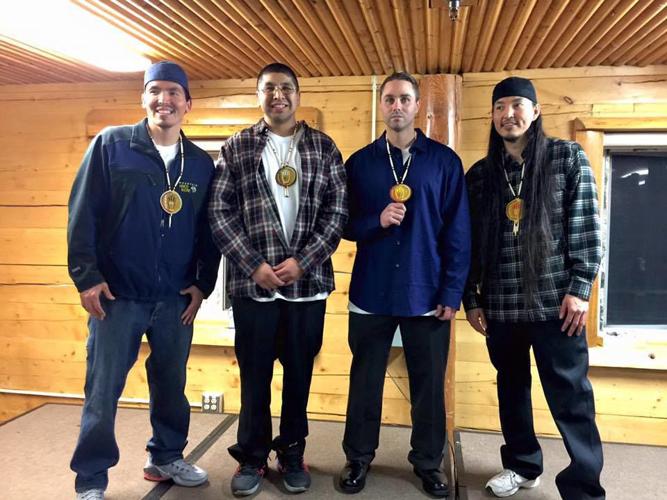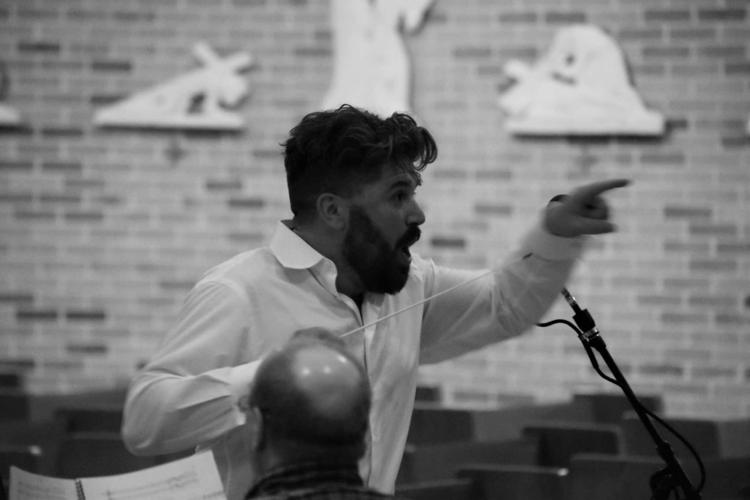Composer Emerson Eads admits he was feeling a tinge of white guilt when he set out to compose a Mass to commemorate the release of four falsely accused Native Alaskans charged when they were teens with killing a white teen.
He grew up in Fairbanks, Alaska and is the same age as the four men whose convictions were vacated in late 2015 after serving more than 17 years in prison.
Foremost on Eads’s mind: “How do I deal with the fact that if I had been arrested that day, things would have been a lot different,” he recalled during a phone call last week from a frigid North Dakota, where he is director of choral activities at Minot State University.
So Eads put pen to paper in late 2015 and composed a “Mass for the Oppressed,” a 30-minute choral piece that St. Philip’s in the Hills will perform twice on Sunday, Feb. 3, with a choir of at least 60, a string ensemble, percussionists, a pianist and four soloists. Eads will conduct the performance.
“The Mass is quite interesting because it of course has the text of the Latin Mass, but it has other texts built into it,” said St. Philip’s Music Director Justin Appel, who has known Eads since the pair were doctoral students at Notre Dame several years ago. “These texts sort of highlight these social justice themes at the same time.”
Eads followed the traditional Mass and then interspersed it with texts written by his brother Evan. Those include: “This is my revenge, I’ll dig on my knees in the deep earth, until there grow trees;” “Remember me, my friend, when you’re free again; remember me to my children! Remember me!;” “I’ll sing to the stars, and dream past clouds, until justice rolls down and truth kisses love.”
Eads’ intent in composing the Mass was to highlight the injustices not only suffered by the so-called Fairbanks Four, but to shine a spotlight on the broader issue. And what better place, he said, than Tucson, an hour from the Mexico border and the contentious immigration battle waging across the country?
“The thing I hope for is that it continually brings up the issues that are not easy to talk about and kind of let you marinate in a little bit of discomfort,” he said. “Also to remind people in Alaska that they are not alone.”
Houston Symphony Assistant Conductor Robert Franz led the world premiere of the piece in Fairbanks in the summer of 2016; the four men were in the audience, as was Brian O’Donoghue, the University of Alaska at Fairbanks journalism professor who led a group of students to investigate the men’s case, which attracted the attention of the Alaska Innocence Project that eventually provided legal assistance to help free the men.
The St. Philip’s performance will be only the fourth time the piece has been performed. After its premiere in Fairbanks, Eads led a performance with a large orchestra and choir at Notre Dame that was recorded and released as a CD and the Anchorage Concert Chorus performed it.
The performances at St. Philip’s, part of the church’s First Sunday Music series that often feature instrument ensembles and the church’s choir, will be during the 9 and 11:15 a.m. church services and will include four of the five movements; they will skip the credo, Eads said.
Admission is free and proceeds from sales of Eads’ CD will benefit the Alaska Innocence Project.





